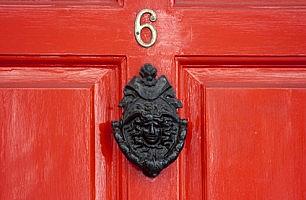Lest we forget
 Let’s say a fond farewell to Alice Herz-Sommer, concert pianist, music teacher, mother and grandmother, who died last weekend at the grand old age of 110.
Let’s say a fond farewell to Alice Herz-Sommer, concert pianist, music teacher, mother and grandmother, who died last weekend at the grand old age of 110.
On a day when it’s so easy to moan about the injustices life has thrown at us it’s worth turning our thoughts to those who, like Alice, not only survived the horrors of the war, but conquered them by managing to go on to have a life full of love, music and real joy.
Mrs Herz-Sommer enjoyed a life at the centre of the artistic world in Prague until she was almost 40. She was a successful concert pianist married to an equally successful businessman and she and her brothers and sisters hung out with Franz Kafka and as a child took piano lessons from Franz Liszt, whom she described to the Guardian “as a pianist, extraordinary, as a teacher, not so good.” It wasn’t an earnest life – she juggled motherhood with her concert-playing career though she wasn’t the world’s most organised musician. She once arrived a day late for an international piano competition but managed to persuade the organisers let her play anyway – and she made it into the final.
Then came the Holocaust and in 1943 she and her husband and son, then aged six, were taken to Terezin, one of the “model” concentration camps designed to persuade charities like the Red Cross that the Nazis were treating the Jews humanely. Later her husband was taken away to Auschwitz, which he survived, only to die in Dachau six weeks before the end of the war.
Mrs Herz-Sommer – known as Gigi – and her son, Raphael, survived and both went on to have fulfilling careers in music, living first in Israel and then moving to London in the 1980s where the sounds of her daily piano practice kept her neighbours entranced and inspired a documentary “The lady in Number 6”, which has been nominated for an Oscar at Sunday’s Academy Awards.
Of course one can never, and should never, forget the horrors of the Holocaust – and as always the true horrors are made so much clearer by the mundane. The small, terrible detail of Mrs Herz-Sommer explaining how, the day before she knew the Nazis were coming for her she turned the lights down especially low so that her son, then aged six, would be able to enjoy one last peaceful night’s sleep in his own bed. What courage must she have called upon to have managed to have tucked him up so normally that night? And how many thousands of nights of such simple joy and love have we, all of us, at one time or another, managed to squander through rows and pointless anger? She lived to bring her son safely home again – but he was one of only 130 out of 15,000 children sent to Terezin to have survived.
So, let’s have a quiet cheer for Mrs Herz-Sommer, not because she survived the camps, but because she perhaps, unwittingly, didn’t seem to have a bitter bone in her body and achieved the sweetest possible revenge –finding genuine long-lasting joy and happiness for herself and her family.
Posted by Amanda Blinkhorn

Leave a Reply
Please login or register to leave a comment.